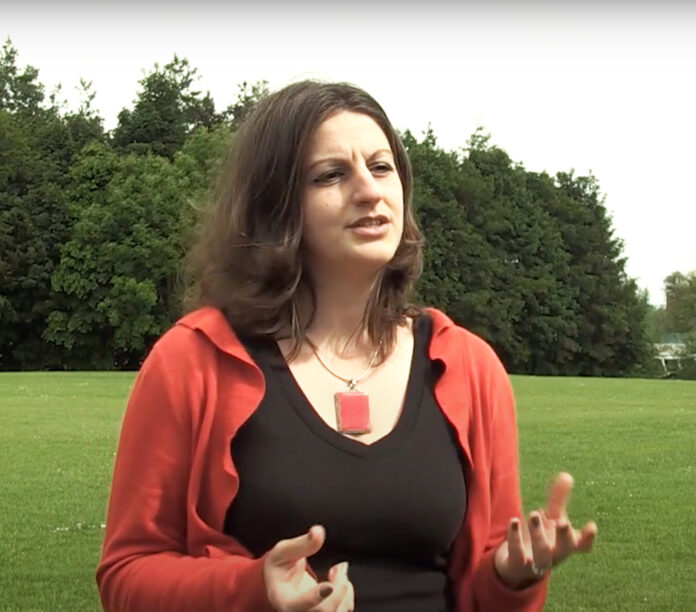
GARDA headquarters has defended how officers interact with sex workers after a hard-hitting report by a Limerick lecturer claimed that some Gardaí have sexually exploited, discriminated, and inflicted trauma on people working in the sex trade.
The explosive findings in a report funded by the Department of Justice recommends a series of changes to the Criminal Law Act including “the full decriminalisation of sex work”.
The report, jointly conducted by the University of Limerick and Gender Orientation Sexual Health group GOSHH, claims the legislation has “drastically affected the lives of street sex workers in urban areas”.
The Act, which came into effect in 2017, criminalised the purchase of sexual services and doubled the penalties for two or more sex workers selling sexual services from the same premises.
The report is based on interviews with 25 street sex workers, ten based in Limerick and 15 in Dublin, found that five of them “had experience of being sexually exploited by Gardaí”.
Participants said they had “a deep mistrust” of Gardaí and felt discouraged to report crimes including rape and violence for several reasons.
These included:
• a history of trauma inflicted by aggressive Garda tactics from the past among sex workers;
• the belief and experience of some officers sexually exploiting street sex workers and abusing their power;
• previous cases of sex workers reporting incidents of physical assault or rape, which were dismissed or mishandled;
• a wide-spread stigma around sex work in Irish society, and hence, sex workers being afraid of publicity
Dr Anca Minescu, author of the report, and lecturer in psychology at University of Limerick, said the findings “show our current law on sex work negatively affects lives, safety, and wellbeing of sex workers”
“Portraying all sex workers in Ireland as ‘exploited victims’ and the way the Gardaí are interacting with the street sex workers, contribute to violence and stigmatisation, this enables very serious incidents of Garda misconduct against sex workers, including sexual assault and verbal abuse, and false legal information surrounding sex work spread by others,” added Dr Minescu.
One participant told the researchers: “We’re actually good people, we’re people that are just living every day, and we’re alive. It’s not like working in a shop, but it is work, I’m not robbing people, I’m going out and making my own money”.
The report provides recommendations for the Department of Justice, which is currently engaged in a review of the 2017 Act, including:
• A clear distinction between sex work and sexual exploitation/sex trafficking
• A strengthening of services for sex workers to ensure they have safe working conditions
• An end to the policing of sex workers by An Garda Síochána
• Encouraging the redirection of funding from An Garda Síochána to sex worker led organisations
• That the discourse on sex work is actively influenced by the overall concern of the well-being of sex workers
A Garda spokesman said: “An Garda Síochána proactively engages with individuals working in the sex trade through welfare checks, to ensure they are safe and to offer safety advice.”
“During these welfare visits, the sex workers are offered State services, such as the Woman’s Health Service attached to the HSE and, in some cases, sex workers are offered supports provided by Ruhama and other Non-Governmental Organisations”, he explained.
“A further purpose of these welfare checks is to identify any persons who are being exploited or coerced in the sex trade.
“The Garda Organised Prostitution Investigation Unit (OPIU) also send welfare text messages to persons advertising sexual services to check on their welfare and offer a confidential way of reporting exploitation or crimes.
The spokesman went on: “Gardaí do not engage with third parties in respect of these welfare checks, nor does An Garda Síochána assist or participate in evictions of sex workers, in any form.”
“The OPIU regularly participates in European led initiatives “with a primary focus of identifying victims of sexual exploitation in the form of forced prostitution and human trafficking”.
He said the “Criminal Law (Sexual Offences) Act 2017 criminalises the purchase of sexual services and the soliciting or purchasing of sex from a trafficked person” and that the Garda’s “focus in enforcing this legislation is to target persons involved in the purchase of sexual services” and to “protect individuals engaged in the sex trade”.
“Last November, as part of co-ordinated days of action, An Garda Síochána conduced 45 safeguarding visits with individuals working in the sex trade. A female victim of sexual/labour exploitation was identified, 77 people were questioned on suspicion of having purchased sexual activity, and a female victim of sexual/labour exploitation was identified,” the Garda spokesman added.










